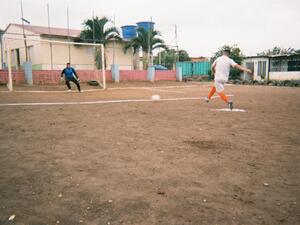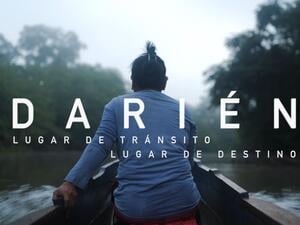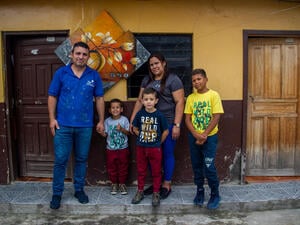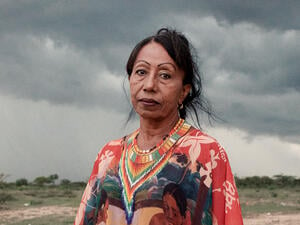UNHCR warns of potential new mass displacement in western Colombia
UNHCR warns of potential new mass displacement in western Colombia
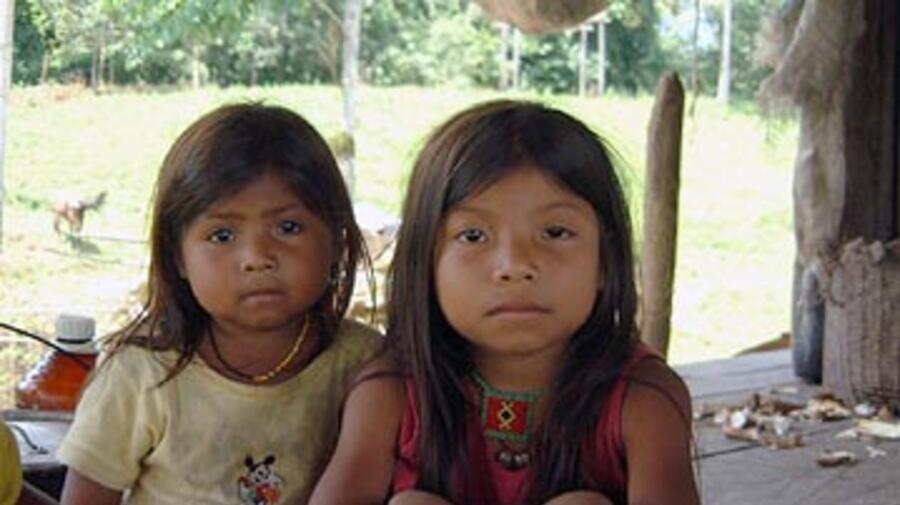
These indigenous Embera girls are among many who could be displaced in Colombia’s Chocó province as armed groups increase their presence.
GENEVA, Nov 23 (UNHCR) - Civilians in western Colombia could face another wave of mass displacement sparked by the increased presence of armed groups, warned the UN refugee agency after a just-concluded mission to the area.
UNHCR completed a one-week visit to the municipality of Bojayá, in Colombia's western province of Chocó, over the weekend. On Tuesday, UNHCR spokesman Ron Redmond told reporters at a Geneva press briefing that the mission confirmed deteriorating humanitarian conditions and an increasingly fearful civilian population alarmed by reports that FARC (Revolutionary Armed Forces of Colombia) guerrilla and paramilitary forces are again massing in the area.
Armed groups are increasing their presence, notably near the Afro-Colombian and indigenous Embera communities along the Bojayá and Opogado rivers. Civilian communities and organisations working in Chocó told UNHCR that there is a high possibility of new, large-scale displacement from the isolated area and that civilians could get caught in the crossfire.
The people of Chocó have been caught in a cycle of violence and displacement caused by more than 20 years of conflict in Colombia. The region is sadly known for the May 2002 church explosion that killed 119 people in the town of Bellavista. Thousands of people left the area after the massacre, and hundreds of them have still not returned.
This year, increasing clashes between various armed groups, and with the Colombian military forces, have resulted in several large-scale displacements. In March, 1,200 indigenous Embera fled their homes along the Opogado, Napipi and Bojayá rivers following clashes between the armed groups. They returned four months later, only to find themselves once again exposed today. In May, over 1,000 Afro-Colombians fled their homes and sought refuge in Bellavista following fighting between the army and the FARC guerrillas.
"UNHCR reiterates its requests to Chocó's civil and military authorities to urgently address this serious situation with local authorities and the communities in Bojayá," said Redmond. "We have also expressed our concern to government officials in Bogota and are continuing to monitor the situation through regular missions to the area."
The current situation exacerbates the already difficult protection situation of the civilian population along the Bojayá and Opogado rivers. Blockades imposed by the armed groups to prevent goods from reaching their enemies have increased, tightening their stranglehold on the population.
Along the Opogado, one of the tributaries of the Atrato River, for example, civilians are suffering from a marked increase in malaria and malnutrition. The Embera communities along the river are struggling to feed themselves, since even heading out along the river to fish can put them at risk.
The situation has been eased somewhat by the re-launch in mid-October of a UNHCR-sponsored humanitarian riverboat - dubbed "Noah's Ark" - which brings basic goods to community stores along the Atrato. But despite this effort, there are serious and growing shortages of food, medicine and other basic necessities in these isolated communities.



